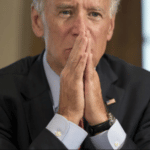

The U.S. Supreme Court, on the eve of President-elect Donald Trump's inauguration, has delivered a unanimous decision that bolsters national security interests by upholding a critical law mandating ByteDance, TikTok's China-based owner, to divest its interests or face an impending ban.
The Hill reported that this landmark ruling emphasizes cybersecurity concerns while deferring the ultimate fate of the popular app to the incoming administration of President-elect Trump.
The contentious law, effective January 19, 2025, was passed with bipartisan Congressional support and signed by President Joe Biden last April.
It provided ByteDance a 270-day compliance window, which culminates today. The Supreme Court's decision dismisses TikTok's constitutional claim, indicating that national security considerations linked to data gathering justifiably support the law's measures.
Justice Sonia Sotomayor remarked critically on the First Amendment implications, but the Court maintained that the concerns over data espionage supersede these reservations.
Justice Neil Gorsuch acknowledged the unpredictability of the law’s effectiveness, as steadfast foreign adversaries might simply devise alternate surveillance measures.
Despite ByteDance's appeals and existing user operations, the impact of the decision looms large on the app's future in the U.S. App Store restrictions might soon limit TikTok’s distribution and updates, which could gradually hamper its functionality.
President-elect Trump will soon hold the reins of this issue, though he did seek unsuccessfully to postpone the law’s deadline. He has expressed interest in negotiating a deal to prevent TikTok’s shutdown, signaling possible executive maneuvers once he assumes office.
President-elect Trump, who relayed his potential actions regarding the app, is set to decide TikTok's trajectory in the coming days.
ByteDance, under strain due to the potential ban, contends that restructuring ownership is impracticable, yet investor enthusiasm persists, inciting debate over what lies ahead for the popular social media platform.
Chuck Schumer, Senate Minority Leader, has publicly called for a delay in the law’s implementation, reflecting growing concerns about its broader implications and lack of immediate clarity. In response, TikTok CEO Shou Zi Chew is poised to attend Trump's inauguration, which underscores the app's stakeholders’ strategic engagement efforts.
White House press secretary Karine Jean-Pierre reinforced the Biden administration's stance that TikTok should remain accessible to users, provided it operates under American governance. This perspective aligns with broader sentiments seeking to balance technological freedom and governmental oversight.
The law’s effective date brings with it a host of pressing questions for industry giants like Apple and Google.
Neither tech giant has publicized decisions regarding TikTok’s removal from their digital storefronts, maintaining a watchful silence as the situation unfolds.
Legal experts, such as Jacob Huebert, warn of the ominous precedent set by the ban. He conveys hope for Trump’s intervention to secure a favorable resolution for TikTok, highlighting broader concerns about regulatory overreach and its impacts on media platforms.
Ultimately, President-elect Trump faces the significant task of addressing these socio-legal and economic dynamics as he steps into office. His resolutions will likely shape public sentiment and broader international relationships regarding digital engagement and governance.
As stakeholders await President-elect Trump's next steps, TikTok users and advocates remain in a state of anticipation. The platform, known for providing a vibrant arena for creativity and social connection, could see profound change depending on forthcoming governmental maneuvers.



